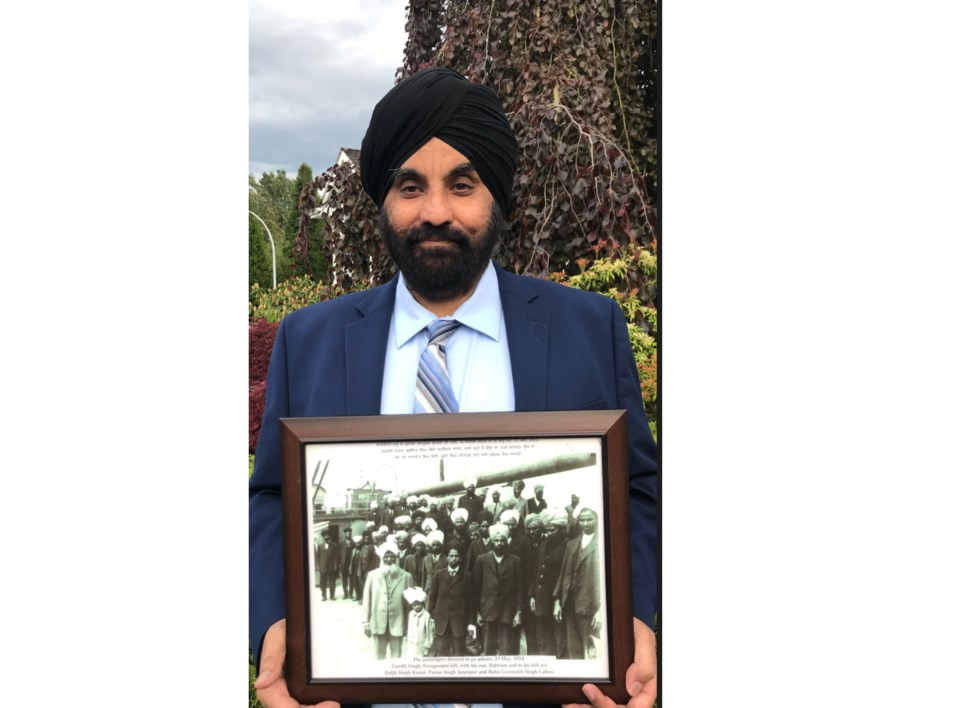A letter from Raj Singh Toor whose grandfather Baba Puran Singh Janetpura was on the chartered ship Komagata Maru that was denied entry into the Port of Vancouver in 1914.
Editor:
I represent the non-profit Descendants of the Komagata Maru Society, in which there are 15 families all over Canada who are direct descendants of the passengers of the Komagata Maru.
The Komagata Maru was a chartered ship that came to Vancouver on May 23, 1914, with 376 passengers, including my grandfather, Baba Puran Singh Janetpura. He was well-educated and was coming to Canada to further his education.
The passengers of the ship were all British subjects and thus British passport holders, but the Canadian government denied entry to all the passengers using regulations designed specifically to exclude immigrants from India. The local South Asian community fundraised and worked to provide the passengers with food, water, and medication.
The Canadian government constantly tried to restrict the South Asian community from accessing the ship. Often the passengers went for 24 hours without food and water, and sometimes two or three days or more. Passengers were getting hungry, thirsty, and starting to get sick.
The Komagata Maru was forcefully sent back to India after two months under the shadow of a military ship. The British were ruling India at that time. When the Komagata Maru arrived in India, British troops shot at them. Twenty were killed on the spot, and many were injured, and the rest were put in jail for a long period of time.
In 1968, my uncle sponsored my grandfather to come to Canada. However, my grandfather refused, saying that he had a painful, bitter memory of Canada. He said that he did not want to move to Canada, but he foresaw that in spite of what happened in 1914, the South Asian community would be very successful, and live happily and peacefully in Canada. His words came true.
The Descendants of the Komagata Maru Society worked for more than 15 years for apologies from the governments involved in the incident. We never asked for any compensation.
The BC Government apologized for this incident on May 23, 2008. On May 18, 2016, Prime Minister Trudeau apologized to the descendants of the Komagata Maru and the South Asian community. Then on June 10, 2020, the City of Vancouver apologized for its role in the 1914 Komagata Maru incident.
In December 2019, I gave a request to the City of Delta Council for recognizing the Komagata Maru passengers. This July I had a meeting with the City of Delta Heritage Advisory Commission. I spoke for 10 minutes in the meeting and a motion to recognize the passengers of the Komagata Maru passed unanimously.
Soon, the city will install an interpretive sign in English and Punjabi in a park in Delta so that residents may be better informed of the hardships and struggle that the passengers of the Komagata Maru endured.
I would like to say thank you to Respected Mayor George Harvie, the councillors, the City of Delta staff, and the City of Delta Heritage Advisory Commission for their work in making this interpretive sign a reality.
We can’t undo the past, but we can move forward and leave a legacy for future generations by educating them about the past. This new interpretive sign will help educate the community and remind us of Delta’s diverse makeup. I hope that it will help in connecting British Columbians, Canadians, and Delta residents with their past, in order to build a more peaceful and tolerant tomorrow.
Raj Singh Toor



